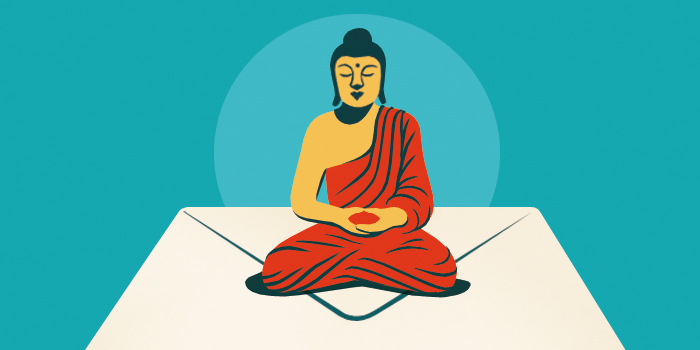What do secular dharma practitioners believe?
The short answer is that it’s up to each person to decide what the best interpretation of secular dharma is. But that is not to say that certain schools of thought haven’t emerged in the past few decades.
Two separate groups refer to themselves as “secular dharma practitioners” or “secular Buddhists.” One group focuses on recent claims of the life sciences, seeing Buddhism as fundamentally compatible with Western natural science. This group often aligns itself with scientistic atheism. The other group favors an interpretive first-person discourse that inspects human experience, believing the Buddha’s teachings are more in line with the 20th-century Western philosophies of phenomenology, existentialism, and hermeneutics.
Regardless of their philosophical affinity, when secular dharma practitioners come together in a community, they usually tend to avoid incense, candles, and religious images. They may meditate in chairs rather than on cushions on the floor.
Secular Buddhists typically recognize the principles of conditionality, contingency, or dependent origination—cause and effect. They also heed the Buddha’s insistence on cultivating mindful awareness around the specific nature of experience, aiming to be fully present for what is taking place right now, right here. Likewise, they value their autonomy and self-reliance, reflecting the refrains in an early Buddhist text that describe people who have entered the path as having become “independent of others in the Buddha’s teachings.”
Secular Buddhists also tend to focus on the earliest Buddhist teachings, including but not entirely limited to the Pali canon. Of particular interest are the Buddha’s teachings on the four noble truths—which some secular dharma practitioners have reinterpreted as the four noble tasks—and the eightfold path.
These four great tasks are as follows:
- Embrace life, including one’s own suffering, that of all others, and that of the world;
- Let go of the instinctive reactivity that causes us to grasp, crave, and reduce experience to our personal fears, desires, and delusions;
- See the ceasing of reactivity, if only for a moment, so we can open to experiences in which we are no longer prompted by fear, attachment, pride, jealousy, or hatred; and
- Act from a place of clarity, embarking on an ethical way of life in which our humanity can flourish in the way we perceive life, speak, act, work, apply ourselves, pay attention, and focus our minds.

Tricycle is more than a magazine
Gain access to the best in sprititual film, our growing collection of e-books, and monthly talks, plus our 25-year archive
Subscribe now